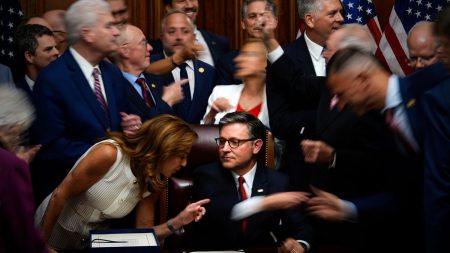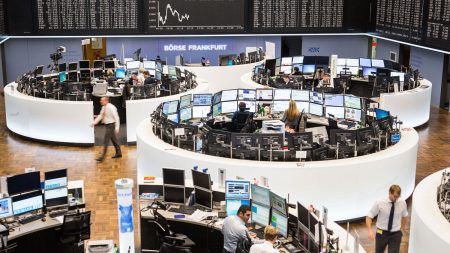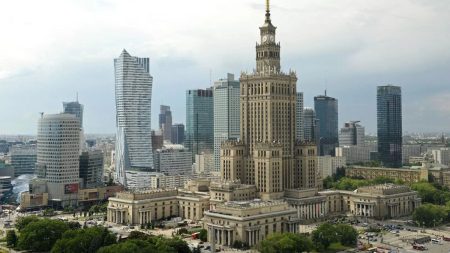In November, German business confidence experienced a significant decline, as indicated by the Ifo Business Climate Index, which fell to 85.7 from 86.5 in October. This drop, marking the second-lowest level since January, signals mounting concerns about the competitiveness of the German industrial sector amid a confluence of economic challenges, including escalating costs and energy prices. The index, which is derived from approximately 9,000 business surveys, reflects the general sentiment within the economy. The decreases in both current conditions and business expectations emphasize a growing sentiment of uncertainty among German enterprises, as noted by Ifo Institute President Clemens Fuest, who stated that the economy is currently lacking strength.
The sense of industrial competitiveness is increasingly shaky, with many German industrial firms reporting a decline in their competitive standing on domestic, EU, and global fronts. The Ifo Institute’s analysis reveals that German companies now rank below their Italian and French counterparts, who provided average assessments that surpassed the EU mean. Notably, industries that are energy-intensive are experiencing the most significant challenges. Ifo expert Stefan Sauer pointed out that the perception of competitive position is notably negative across all sectors, particularly in relation to foreign markets. His comments underscore a trend of diminishing advantages for German industry in international markets, marking the most severe decline in industrial competitiveness documented since the survey’s inception in 1994, particularly over the past two years.
The factors contributing to this decline in sentiment are multifaceted. Businesses cite high energy prices, bureaucratic complexities, increased costs for intermediate goods, and substantial tax burdens as primary barriers to their competitiveness. Structural challenges, such as skill shortages and an aging workforce, further exacerbate these issues. The Ifo Institute has advocated for reforms aimed at streamlining state funding allocations for municipalities, which often struggle with complex bureaucratic demands. Sarah Necker, a director at the Ifo Institute, suggests that transitioning from funding programmes to regular lump-sum payments could alleviate bureaucratic inefficiencies, especially in smaller municipalities where these challenges are pronounced.
Further compounding these difficulties, the German private sector’s activity plummeted to its lowest level in nine months, as reported by the latest Purchasing Managers’ Index (PMI) surveys. The manufacturing sector remains entrenched in recession, while, notably, the services sector has contracted for the first time since February 2024. This contraction is evidenced by the significant rises in costs, particularly wages, which were highlighted by Dr. Cyrus de la Rubia, chief economist at Hamburg Commercial Bank. The wage increases negotiated in the third quarter were notably the highest since 1993, suggesting broader inflationary pressures that are weighing heavily on operations as companies are faced with rising input costs and diminishing demand.
On the political front, uncertainty continues to loom over Germany’s economic landscape, fueled by the impending snap elections scheduled for February 23, 2024. This has amplified concerns within the business community, as political stability is often crucial for encouraging investment and fostering a robust economy. Dr. de la Rubia highlights that the political turbulence, exacerbated since Donald Trump’s election as US President, presents additional challenges for businesses already grappling with economic pressures. The modest uptick in the future output index, however, hints at a flicker of optimism that the incoming government might implement effective measures to revive the economy, such as reforms to the country’s debt policy.
Overall, the convergence of dwindling business confidence, high operational costs, political uncertainty, and structural challenges paints a grim picture for Germany’s economic prospects. With industrial competitiveness faltering and the private sector’s activity declining sharply, there are calls from economic experts for immediate and impactful policy interventions. Ensuring that businesses can navigate these turbulent times requires not only addressing immediate financial burdens but also undertaking significant structural reforms. The Ifo Institute’s analysis and recommendations highlight the need for adaptation and resilience in order to restore confidence and secure Germany’s position as a leader in industrial competitiveness within Europe and beyond.














